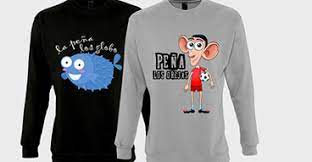Pest complaints are one of the common conversation topics among families, friends and colleagues. Rentokil shares some of the common home complaints commonly suffered by many.
There are many self-help and DIY tips to eliminate home pests. However, that may or may not work due to various reasons. While most methods do deter and repel pests to some extent, these home remedies are generally short-term and quick fix with minimal to no effect.
Using pandan leaves based on a popular pest myth to get rid of cockroaches will only result in further infestation due to its food source made available for pests to feed on. Cockroach prevention begins with good housekeeping and removing their breeding source.
Getting rid of ants with chalk and cucumber peel only deters ants from location to location. It does not eliminate the root source.
Applying baking soda or cinnamon to remove bed bugs will not address the massive reproduction and quick spread of their presence of bed bugs. They usually hide in hard to see and reach spaces as the mattress seams which these sprinklers may not cover them. Professional bed bug control is necessary. This avoids additional investments incurred to replace mattresses, furniture and curtains.
Getting rid of mosquitoes will not work with just protecting yourself with lemongrass or citronella elements. Adult mosquitoes and larvae are still present to breed and seek their host for blood.
Termite prevention with orange oil is a said myth that may have limited efficacy to eliminate the colony. Rather, it may be hazardous due to its flammable and acidic component.
Dr. Chan Hiang Hao, the Medical Entomologist of Rentokil Pest Control debugs various pest myths applied on ants, cockroaches, mosquitoes and rats. To find out which pest myths are not true, read here.
An assuring way to protect from pest damages and harm is to engage a reliable pest control company to design a suitable pest elimination solution for you. Besides delivering pest control services for residential settings, the pest control specialists will also advise you on several matters. For example, pest type species, key risk areas with pest activities, causes of an infestation and additional pest prevention tips to manage pest problems better. Some of the home pest control programmes include:
Termite control solutions that help eliminate termite colonies and prevent further damage to a home with seven years warranty.
Integrated mosquito control programme including fogging, larviciding to eliminate mosquito breeding sources and placement of mosquito traps at hot spots.
Common pest treatment such as cockroach control and managing ants’ infestation in a home can be frustrating to live with when it comes in groups.
Bed bug treatment is often sought for. Dealing with bed bugs can be a challenging task given their tiny and flat body size and speed of spreading from room to room. Three-time residual spray and steam treatment is carried out to control the entire lifecycle of a bed bug.
Dengue cases in Singapore are still on the rise with an alarming figure of over 6,500 cases till date and with over 111 active dengue clusters. Mosquito prevention forms a critical and an essential home maintenance checklist in keeping your family safe from dengue fever. Firstly, understand what causes a mosquito infestation. This includes poor housekeeping, letting potential water receptacles to lie around and inadequate home maintenance. For instance, plant watering habits can lead to water build up or hardening of soil that makes water absorption poor. Secondly, be more observant and vigilant towards signs of mosquitoes. For example, do you notice larvae breeding along gully traps or the drains, and presence of flying adult mosquitoes? Thirdly, is your pest control solution complete with dengue control and sound pest education?
While we are familiar with the deadly Aedes Mosquitos that bite us as hosts to aid in their reproduction, unfortunately, there are still many uncertainties and misconceptions around mosquitoes and the dengue disease.
Seeking professional pest advice and useful housekeeping recommendations can save unnecessary stress in pest issues troubleshooting. This is because, pests are experts in hiding well. Additionally, they can reproduce and spread quickly and cause harmful health risks and structural damage. Similar to medical diagnosis and prescriptions, pest experts such as Rentokil initial can perform pest identification and trend analysis. In addition, study the environment for risk factors and surrounding consideration. Thirdly, they can recommend suitable and relevant treatments to resolve the pest infestation. This includes undergoing a more intense flush out solution or light and basic maintenance programme. Fourthly, they will advise on essential do’s and don’ts of a premise that promote pest harbourage. Finally, they will engage you with ongoing communication and treatment to ensure the pest problem is well controlled. Above all, for pests that are more complex and complicated to identify due to its habitat nature such as termites, pest control experts will use innovative termite inspection for homes to detect termite activity and movements through Microwave technology.
The Alabama Cooperative Extension System creates integrated pest management guides for major row crops; small and stored grains; pastures and forage crops; commercial turfgrass; noncropland; houses, buildings and grounds; commercial trees and ornamental crops; commercial horticultural crops; and homeowners lawns and ornamental and garden crops. These guides are compiled by both current and former Extension entomologists, plant pathologists, weed scientists, and a pesticide education specialist. Each IPM guide provides information on the selection, rates, application, and safe and proper use of pesticides.
Because the status of pesticides is constantly changing, some that are currently listed in the guides may no longer be legal. Also, some recently labeled pesticides may not yet be included. For these reasons, anyone preparing to use a pesticide should always consult the current pesticide label on the container before application.
Chemicals are listed both by common names (lowercase letters) and by trade names (all capital letters). Some chemicals are available only under trade names and, therefore, their common names may be omitted because of space restrictions. The presence or absence of any particular trade name in no way indicates endorsement or discrimination on the part of Alabama Extension.
Pest Control Services Near MeRecommended uses of pesticides are based on research, field trials, demonstrations, and experience. Because of variations in environmental conditions and methods of application, these recommendations do not assure that your results will always be the same as those obtained in research.
The label on every pesticide container presents information that is essential to safe and proper use, handling, and storage of the pesticide. Users are responsible for adhering to label information and should always review it thoroughly before applying the pesticide. Applying rates that exceed the recommendations or shortening the waiting period from application to harvest or grazing can cause excessive residues that are illegal according to state and federal regulations.
There are a myriad of pests that can cause problems at your establishment. Those problems can range in severity, but at worst they may include the destruction of food stores, food inspector violations, the spread of bacteria and disease, or the sullying of your reputation. Some pests are more common than others. These include cockroaches, flies, mice, mosquitoes, and rats.
Cockroaches are unhygienic scavengers that may carry certain bacteria that can cause illnesses if left on food. Additionally, they serve as an allergen source and an asthma trigger. Cockroaches are typically found in dark, moist places, such as behind refrigerators, sinks, and stoves, or under floor drains and inside of motors and major appliances. They can enter through small holes and cracks in the building, or they can come in on bags or other containers.
Flies are known for spreading at least 200 known pathogens and parasites to humans. They rarely bite or sting humans but because they often land on dead animals, rotten food, manure, and trash, they pick up and spread diseases that are harmful to humans.
Mice and rats are dangerous and destructive pests. They carry and transmit viruses, bacteria, and other diseases. Additionally, they can be responsible for causing damage to your property, chewing through walls and wiring, and getting into food.
Mosquitoes bite humans to consume blood. While doing so, they can also transmit harmful, and sometimes fatal, diseases, including Zika virus, yellow fever, dengue, and malaria.
Mosquitoes bite humans to consume blood. While doing so, they can also transmit harmful, and sometimes fatal, diseases, including Zika virus, yellow fever, dengue, and malaria.
You and your maintenance crew have likely taken great care to keep your properties sanitary and tidy. However even after careful maintenance, buildings can still fall victim to a pest infestation. An infestation describes the presence of any species in numbers that can cause property damage, have health implications for building occupants or present a distracting nuisance. Unfortunately, once pests are noticeable, it often indicates a larger problem, and may even indicate an infestation.
Animals and insects become pests when they take up residence where they don't belong. These varied and determined creatures can adapt to just about any habitat provided they have food, water and shelter for them to thrive and reproduce. Most pests fall into one of three categories:
Birds that are known nuisances include pigeons, geese, house sparrows, gulls and starlings. In numbers, birds can cause significant damage from droppings and nesting. Bird droppings are highly acidic and can eat through many building materials.
Rodents can cause a lot of damage by chewing away at material to build nests. Rodent droppings can spread diseases such as salmonellosis. Dry rodent fecal matter can be a hazard if inhaled, causing allergic reactions.
The damage and health problems caused by insects are well known, with fleas and mosquito bites among the more common. Mosquitoes can be especially troublesome to groundskeeping crews or contractors on construction sites. For permanent outdoor spaces, particularly in hospitality settings, electronic bug killers can help. Cockroaches are known to carry a variety of infectious diseases and can cause serious illness.
Ideally, you'll stop an infestation before it starts. The Environmental Protection Agency lists some basic prevention methods, including:
But if you've tried to head off the problem and haven't had success, it’s time to take action. There are several categories of pest control methods, however most of fall into one of three categories:
This is the use of living organisms to help eliminate the infestation. This can be anything from predators to parasites to pathogens. One of the biggest advantages of natural methods is that they don’t involve the use of chemicals, reducing potential harm to humans or the environment. Most biological methods, however, are only feasible for small pest invasions like insects or plants, and they typically take some time to work.
Chemical pest control is the use of pesticides to eliminate pests. These solutions are typically easier to find and use than biological methods. Chemical controls often work faster, sometimes delivering instant results once applied. Examples include repellents, which are solutions that deter pests that crawl or fly within your perimeter or insecticides, designed to kill insects. Despite their many advantages, these toxins can pose health and environmental threats upon exposure, but most modern chemical effects are only temporary.


.jpg)

.jpg)





